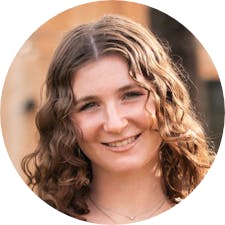It was 6:30 a.m. on Oct. 7, 2023, when sirens started blaring in Kibbutz Re’im, prompting Gal Cohen-Solal to retreat with his wife and three young kids into their safe room. It would be another 30 hours until the family safely left the kibbutz in southern Israel.
The Cohen-Solal family moved to Kibbutz Re’im just six days before the Oct. 7 Hamas terror attack on Israel, becoming “refugees in [their] own country” soon after.
Cohen-Solal spoke to a crowd of about 60 Duke community members Thursday evening, recalling his experiences on the day of the deadliest attack on Jewish people since the Holocaust. Cohen-Solal shared his story as a speaker for the organization “Faces of October 7th,” during the event co-hosted by Jewish Life at Duke, Chabad at Duke, Duke Friends of Israel, Students Supporting Israel and Camera on Campus.
“I'm afraid that people will forget us,” Cohen-Solal said. “They will forget what we had to face that day, so this is why I came.”
Cohen-Solal said Hamas “entered the kibbutzim for one reason: to kill and capture as many civilians as they c[ould].” At first, he hoped to escape, but he was advised by a phone call from a kibbutz leader that it was not safe.
“That was the first time that my life was saved,” Cohen-Solal said.
He showed graphic security camera footage of Hamas pickup trucks speeding towards the kibbutz, showing its security guard’s pickup truck being shot at and overtaken just outside the community gates. Cohen-Solal said the guard did not survive.
He described how the Nova Music Festival, the site where over 380 Israelis were murdered and others were taken hostage, was right across the main road from Kibbutz Re’im. Cohen-Solal recounted that roughly “100 terrorists” entered the kibbutz, while several others remained outside the gates and shot at people’s backs on the main road and in the fields.
“I will take it with me for the rest of my life,” Cohen-Solal said, noting that he “was 100% sure that [he] was going to die.”
Cohen-Solal said he knew that if the terrorists entered his home, he would exit the safe room and try to sacrifice himself to save his wife and kids.
He described witnessing a neighboring couple find out their son was murdered. He showed images of two apartments where attendees of the Nova Musical Festival attempted to hide and of other houses and apartments throughout the kibbutz that were burned by Hamas.
Cohen-Solal dedicated his presentation to two victims of the Oct. 7 attack and the larger Israel-Hamas war.
The first was Roy Levi, an American-Israeli citizen who was Cohen-Solal’s commander in the Israeli Defense Forces during his period of military service. Levi was killed Oct. 7 while fighting inside Kibbutz Re’im.
The second was Shauli Greenglick, Cohen-Solal’s wife’s cousin, who was an aspiring singer and soldier. Cohen-Solal showed the last picture taken of Greenglick inside Gaza, which depicted him helping an older Palestinian woman in a wheelchair.
Cohen-Solal concluded by showing a picture of his five-member family.
“Nowadays, the kids are smiling, but for me and for my wife, it's much harder to smile. But it doesn't really matter,” he said. “Nowadays we're only living for our kids.”
During the Q&A portion of the event, he was asked to talk more about the hostages and what it means for them to be released.
Cohen-Solal stressed the importance of ensuring that violence like what occurred on Oct. 7, 2023, “will never happen again.” He also expressed that because his kibbutz is such a close-knit community, members feel the loss of their neighbors very deeply.
“Israel will never heal until we have everyone back,” Cohen-Solal said.
Get The Chronicle straight to your inbox
Sign up for our weekly newsletter. Cancel at any time.

Ava Littman is a Trinity sophomore and an associate news editor for the news department.

